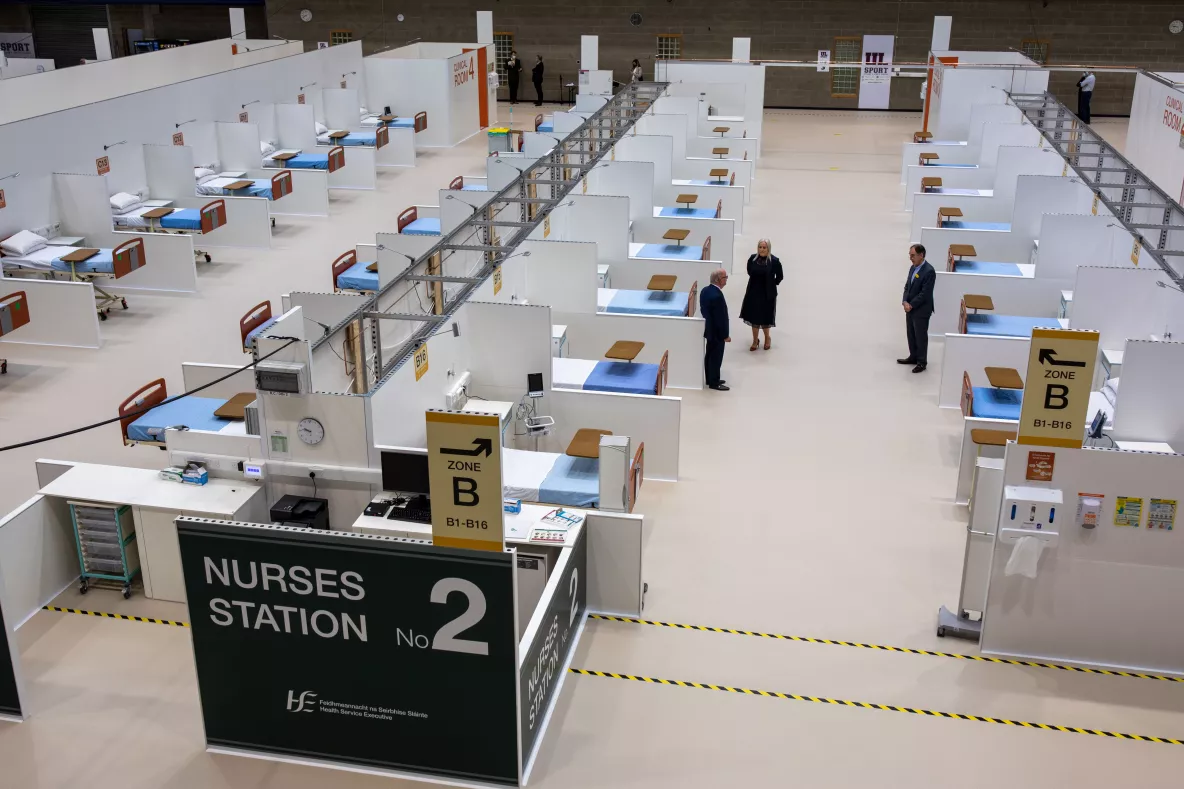
The UL Hospitals Group’s Intermediate Care Facility at University of Limerick has closed after almost five months of providing step-down rehabilitative care for non-COVID-19 patients.
All UL Hospitals Group (ULHG) staff who were redeployed to the temporary hospital facility in early June will be initially reassigned to University Hospital Limerick to support the phased opening of a brand new 14-bed block at the region’s main acute hospital.
A total of 188 patients benefitted from rehabilitation at the Intermediate Care Facility (ICF) between June 8 and October 23, with 24-7 care provided by a workforce of 70 UL Hospitals Group staff.
The new ward block at UHL, developed as part of the Government’s national action plan for the pandemic, is a rapid-build construction project overseen by HSE Estates, creating 14 single-room en-suite beds over two storeys.
UL students from the Faculty of EHS supported the multi-disciplinary team at the ICF and had opportunities to experience excellent practice-based education and inter-professional collaboration at the facility and to be involved in giving care to patients with complex needs.
The ICF grew out of the collaborative relationship between UL Hospitals Group and the University of Limerick, and was developed as a contingency solution to the patient flow and crowding challenges experienced in the region’s hospitals during the pandemic.
UL President, Professor Kerstin Mey said: “We have a very significant and valuable partnership with University Hospital Limerick as well as a strong commitment to our Mid-West community. The Intermediate Care Facility at UL was an example of a very collaborative multi organisational solution to serve our community at an anxious and difficult time.”
Professor Paul Burke, Chief Academic Officer of UL Hospitals Group and Vice Dean of Health Sciences at UL, was executive lead on the ICF project and he applauded the collaborative spirit in which nursing, medical, allied health and support staff had wholeheartedly embraced the ICF model of care.
“The ICF has been a hugely positive experience for all involved, including many nursing and medical students who worked in the ICF as health care assistants,” said Professor Burke.
“It was also a very successful bridge between ULHG clinicians and the students from UL’s School of Allied Health Sciences many of whom were able to complete their formal training placements while working in this uniquely positive environment. The model of joint care in the ICF, provided by the different AHS groups in conjunction with doctors and nurses, is a model that I hope will be retained in UL Hospitals. It has provided extraordinarily engaging learning opportunities for students, and benefited patients and staff alike. It has been a privilege to witness this project come to fruition, with tangible benefits for all, and I would like to thank everyone involved in making it possible.”
UL Hospitals Group CEO Colette Cowan paid tribute to all involved in making the ICF concept a reality, particularly the Group’s academic partner, the University of Limerick.
“The ICF was a vital strategic element in our efforts to manage patient flow at this unprecedented and challenging time. We could not have done it without the generosity of our academic partner in providing the space for the facility.”
Yvonne Young, Assistant Director of Nursing at the ICF, said: “The ICF was more than a mere unit. It was something truly special—a hospital without doors, with the patient at the centre of a multidisciplinary team in which everyone had a voice. It was a very open facility in layout, and in spirit, where the ethos at all times was kindness.
“I’ve never experienced anything quite like it, and I feel the staff benefited as much as the patients. I’m hopeful that we can learn from this model of care for the benefit of all our hospitals,” she added.